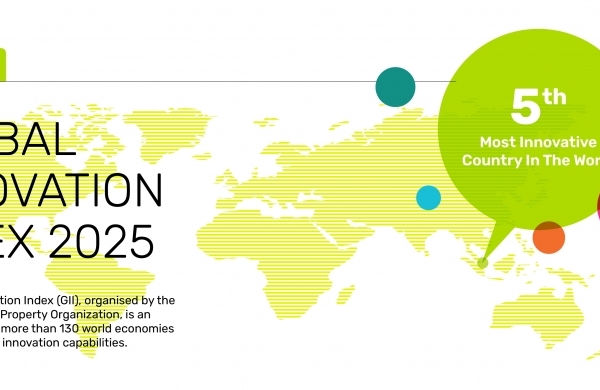Did not receive verification mail? Please confirm whether the mailbox is correct or not Re send mail

Vapor
- 2021-04-09 11:24:10
Oops!Hope this vessel has insurance coverage as IP does in China
Abatement insurance
Defense insurance
Multi-peril intellectual property
Unauthorized disclosure insurance
Litigation management

[Suez Canal Authority]
Have you got covered?
Weeks
ago, the world was anxiously staring at a vessel of 200,000 tons
blocking the Suez Canal, the throat of the global economy. Such
incidence involves a low probability but high stakes. Attention soon
shifted insurance coverage for such an unprecedented loss in the global
shipping history.
Insurance may cover a vessel against risk of
low probability but huge losses. Likewise, insurance may also cover IP
for unexpected infringement disputes in its global operation.
Especially when the US-China trade war continues, IP dispute is becoming
an imminent risk that could block an industry's regular operation in
one night.
However, rare people know that China is rapidly building up its IP insurance market.
Current status of IP insurance in China
In
2020, the insured amount of intellectual property insurance had
exceeded 20 billion yuan (about 3.1 billion dollars). This growing
market benefits 4,295 enterprises, as shown in the China National
Intellectual Property Administration (CNIPA) first-quarter press
conference of 2021 in Beijing. [1]
The
significant volume reflects the rapid growth of the IP insurance
market. It also signals China's innovation ecosystem is becoming more
favorable toward the commercialization of IP, the fruits of innovation
activities.
Innovation Crouching Tiger elaborates such a subtle but essential connection happening in China.
The function of IP insurance
IP
is a kind of intangible property, which does not have the precise
boundaries of real property. Its scope and validity are subject to
interpretation and challenges. Various commercial factors affect the
monetary value it can eventually generate.
Furthermore, in
extreme cases, legal issues can eliminate the IP underlying a
transaction. As such, transactional parties have reason to worry about
the legal defects of the IP.
Patent insurance cannot
eliminate these uncertainties. But it does provide some comfort to
lubricate patent-related transactions. It could also mitigate the risks
on two aspects:
First, an insurance policy's existence assures
the transactional party that a professional has looked at the IP before
underwriting it. Second, having insurance means that the costs of
defending the rights may be covered to some extent, if not wholly.
In other words, mitigation measures do not commercialize IP, but they lubricate the transaction by decreasing the risk.
This
benefit is obvious in China. China's IP regime is still evolving. The
scope and validity of a granted IP are subject to the threat of various
unpredictable influences.
Further, while IP commercialization
is becoming a popular idea in China, the IP system itself is still
strange to many parties who may want to transact. In this environment,
insurance provides participants with some indication of legitimacy.
Tips for using IP insurance as a risk mitigator in China
IP
insurance is a mature practice in developed markets. Well-established
insurance carriers, such as IPISC or Willis, provide the policies
below:
A
foreign party who either collaborates or competes in the Chinese market
may wish to acquire such IP insurance. But Chinese insurance carriers
have not attended to this group of customers. One may consider
leveraging such policies provided by foreign insurance carriers for an
IP in China.
This option is feasible because IP, especially
patents, trademarks, and copyrights, is a jurisdiction-based right. That
means, for instance, a Chinese company may apply for a patent with the
Chinese patent office to protect its invention. Still, if the company
wants to protect its IP rights in the US, it must apply for the patent
with the US Patent and Trademark Office (USPTO).
Although a
Chinese company owns the US patent, the USPTO grants the US patent
according to US patent law and practice. Therefore, a US IP insurance
carrier should feel comfortable underwriting such a patent regardless of
its value realized through business activities in China.
More about IP risk mitigation in China?
Interested? Read more about China's IP ecosystem's developments by visiting our blog at ICTiger2020.com or Facebook at ICTiger2020 for related news updates. Contact author at Jili_ICT@springip.com.
[1]https://www.cnipa.gov.cn/col/col2521/index.html
Source:iprdaily.com
Author:Jili Chung, Josie Chen, Jonas Hou
Editor:IPRdaily-Vapor
- I also said the two sentence
- Also you can enter 140words
 TOP IPR U.S. Lawyers 10 & Firms 10 Selection Officially Launched by IPR Daily
TOP IPR U.S. Lawyers 10 & Firms 10 Selection Officially Launched by IPR Daily WIPO Global Innovation Index 2025: China Enters Top 10
WIPO Global Innovation Index 2025: China Enters Top 10 Singapore ranks 5th in the 2025 Global Innovation Index; climbed two spots in Innovation Outputs
Singapore ranks 5th in the 2025 Global Innovation Index; climbed two spots in Innovation Outputs Federal Circuit lacks jurisdiction over award that doesn’t raise issue of patent law
Federal Circuit lacks jurisdiction over award that doesn’t raise issue of patent law


